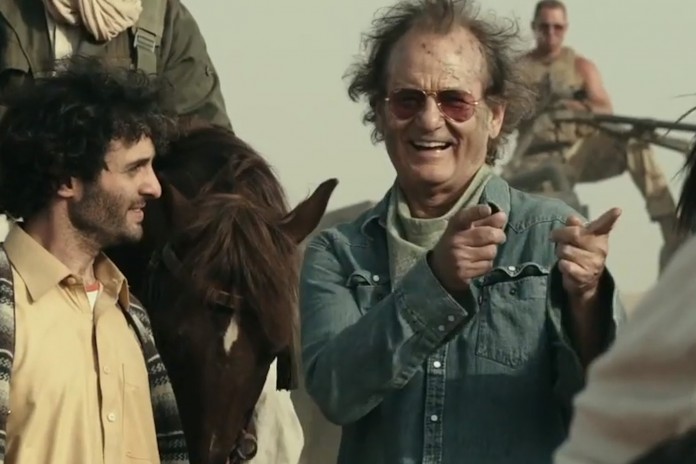The play on words that is the title to screenwriter Mitch Glazer and director Barry Levinson’s Rock the Kasbah is one feels akin to the sort of pitch you would hear from Alan Partridge, as you get the impression the title was thought up first, and then the narrative was implemented afterwards, in the most contrived fashion imaginable. The song ‘Rock the Casbah’ by The Clash doesn’t even feature within the picture given the filmmakers were denied the right to use it. Guess Joe Strummer’s estate had read the screenplay.
Bill Murray stars Richie Lanz, a downtrodden music manager living off the stories of his own past, where he spent time with the likes of Stevie Nicks and Madonna, apparently. While desperate to unearth the next big thing, in a bid to make some cash on the side he sets off to Afghanistan with his act Ronnie (Zooey Deschanel) to play for the troops. But while there, and during a dangerous mission alongside Bombay Brian (Bruce Willis) to sell ammo to a local community, he hears a beautiful voice coming out of a cave, and in there he witnesses the chief’s daughter Salima (Leem Lubany) singing to herself. Spellbound by what he has witnessed, he attempts to enter her into the televised talent show Afghan Star – but given the fact she’s a woman, that task becomes somewhat harder, and far more life-threatening, that he may have envisaged.
The core narrative – that of a young woman defying the odds and social expectations placed upon her to sing courageously, is an intriguing one – but it takes around an hour to get to this point, as a film with a distinct lack of focus. Instead we embody a Westerner and adopt his perspective, rather than the far more interesting tale that belongs to Salima. Before we even meet her, we enter in to a series of inane, superfluous sub-narratives, most of which feature Danny McBride.
The representation of the Middle Eastern setting is a dubious one also, and somewhat irresponsible in parts – and while there is certainly an obligation to explore that sense of disorientation our protagonist is feeling in being a foreigner and adapting to a whole new culture – you only have to look at another Murray production, Lost in Translation, to see how it can be done in a sensitive manner. Instead we play up to stereotype in regards to the locals and overstate the danger within the country, and the poverty-stricken nature of the setting. In local bars, the local people shoot off the top of their beer bottle rather than use a bottle opener, and when celebrating we see them shoot their guns at the roof – a joke performed by comedians Harry Enfield & Paul Whitehouse, but this time without that same sense of blatant satire.
Meanwhile Murray is, of course, absorbing in the leading role, as one you really do feel was made for his sensibilities. In other words, the character is a heartless, grumpy eccentric. But regrettably the actor’s performance really is one of very few saving graces in this truly underwhelming piece of cinema.







